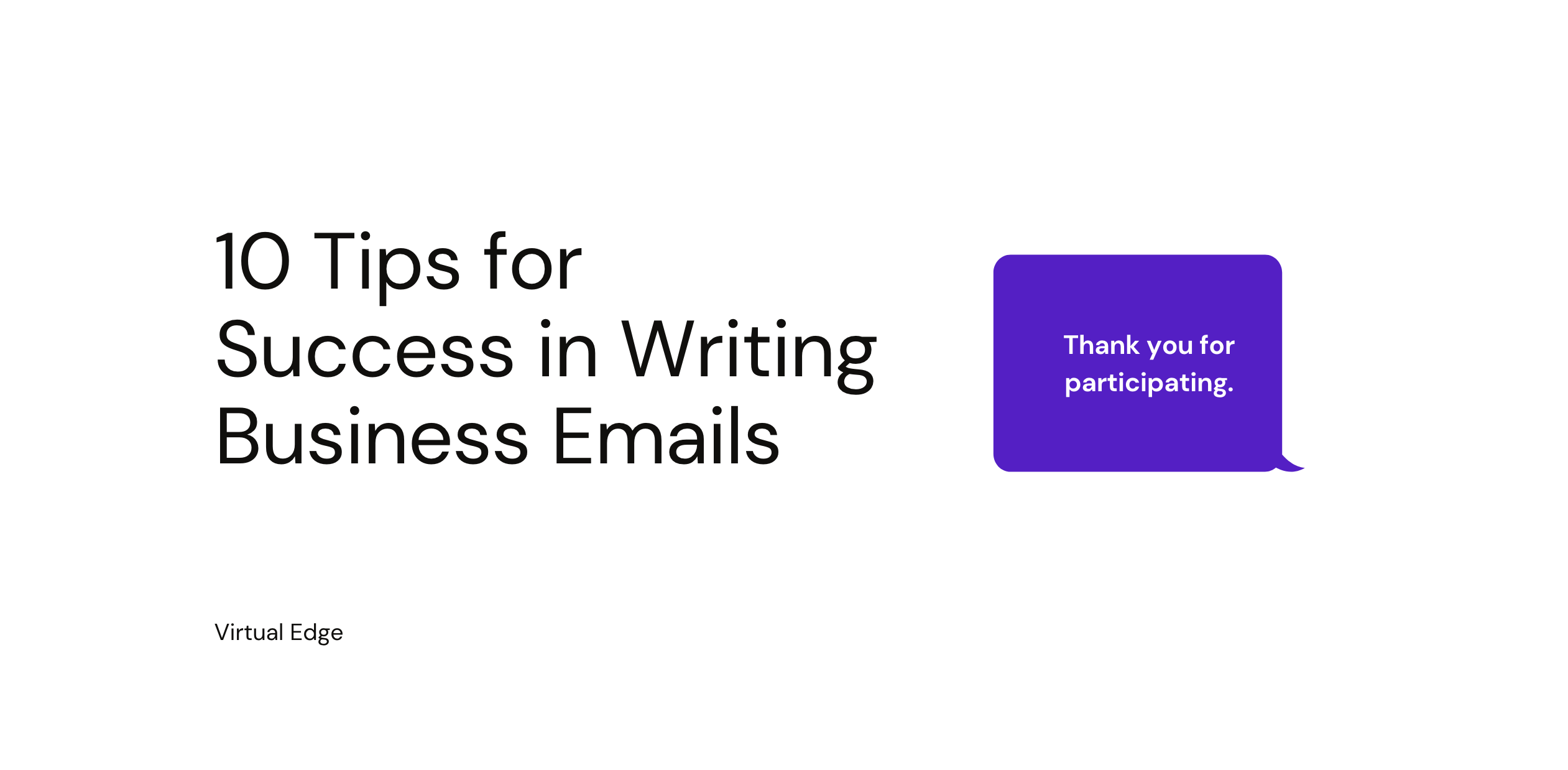Have you ever received an email that left you confused, wondering what the sender’s intentions were? Are you frustrated with receiving pointless, wordy email messages that would have best been delivered by telephone, or in person?
“Some of the email I get reads like someone’s stream of consciousness, as if the writer just Jumped whatever was in his or her head onto the computer screen… It would save me a lot of time and trouble if people would just stop for a minute and think through what they want to say.” — Sr. Director of Marketing, Fortune 500 Company
In my world, I spend a good portion of my day wading through email. In fact some days I spend more time engaging with email, than I do with the telephone. Does that sound familiar to you?
Many people prefer to communicate by email. Why is that? Well, for starters, no one can deny its efficiency, if used properly. In the business world, email leaves an electronic paper trail, which is important. Some of its positive uses are:
- Informational Messages
- Announcements
- Delivering and Collaborating with business documents
- Company Policy Statements
- Quick Responses to Simple Questions
Where some people seem to struggle is when they use email to deliver complex, emotional or controversial messaging.
Unfortunately, since there isn’t a warm voice accompanying the message, or a handshake sealing a deal, email messaging can easily be misinterpreted, leading to sometimes painful consequences, for both the sender and the receiver. Recently Linda Sheppler, at Experient, put together a terrific “Email Etiquette” document that outlined the following excellent tips:
Begin each email with a greeting.
No matter how pressed for time you are, a simple greeting such as “Hi,” “Hello,” or “Dear X” is good etiquette. Otherwise, if you launch into your email without a greeting or introduction you risk being perceived as impolite or impatient.
Take the time to ensure your subject line accurately reflects the contents and nature of your email.
This will go a long way to ensure that your email gets the attention and consideration it deserves.
Be as concise as possible.
Your recipients will appreciate it if you keep your email brief, and to the point, and you’ll also increase your chances of getting a timely reply.
Ask permission before forwarding another person’s email correspondence.
Even if you’re confident the other person wouldn’t mind if you forward their email to someone else, it’s proper etiquette to check first, so you don’t risk violating their trust.
Reply to emails in a timely fashion.
If you know in advance you can’t give an email the attention it deserves, at the moment, give the sender a quick heads-up that you have received their email but haven’t had time to review it yet.
Send personal emails from your non-work account.
Sending personal emails from work is generally “frowned upon” in business, but occasionally we all need to send a personal email during working hours. In this instance, use a web-based email account such as Gmail or Yahoo.
Remember that your business email, both the address and all correspondence, is the property of the company you work for.
Anything you’ve ever sent or received–even if you’ve deleted it–could potentially be retrieved from the system by a database administrator at any time.
Use the blind carbon copy (BCC) function when you send a bulk email.
Some people consider having their email address exposed to a long list of strangers an invasion of privacy.
Always proofread email before sending!
Check for spelling, edit awkward sentences and soften message tone. Delete unnecessary text (previous strings, if replying to an email) unless they are relevant to the conversation.
Wait until AFTER you’ve proofread your message to enter in email addresses.
Hitting the “send” button at the wrong moment can be both embarrassing and disastrous!!
Like anything else in business, your email writing style, and messaging is a reflection of your personal brand. It only takes a few extra minutes to thoroughly proofread an email. That is time well spent. Careless emails can severely damage relationships, ruin reputations and even jeopardize careers.
